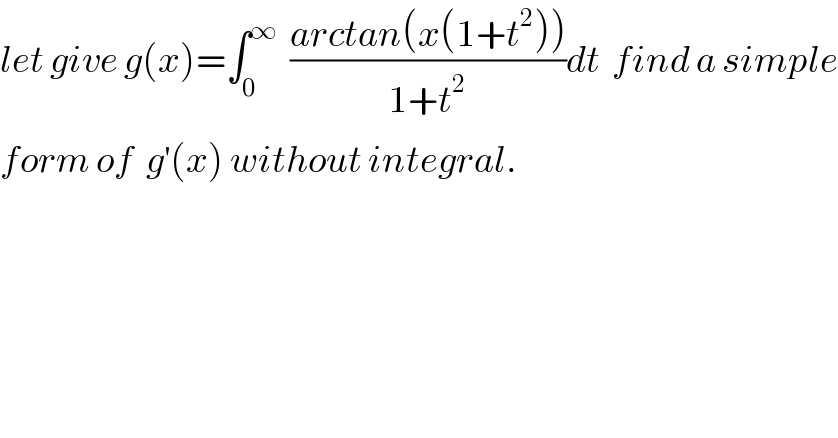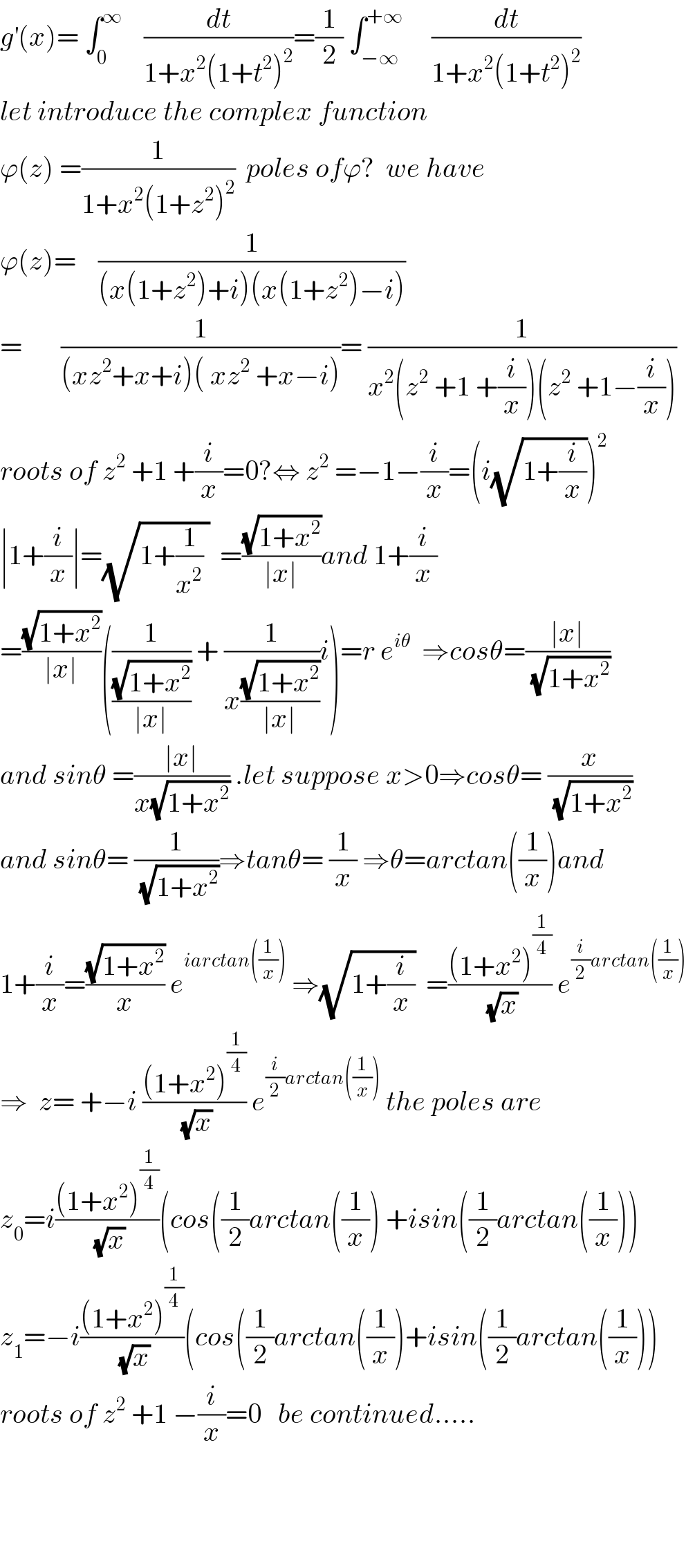
Question and Answers Forum
Question Number 29077 by abdo imad last updated on 04/Feb/18

Commented by abdo imad last updated on 10/Feb/18

| ||
Question and Answers Forum | ||
Question Number 29077 by abdo imad last updated on 04/Feb/18 | ||
 | ||
Commented by abdo imad last updated on 10/Feb/18 | ||
 | ||